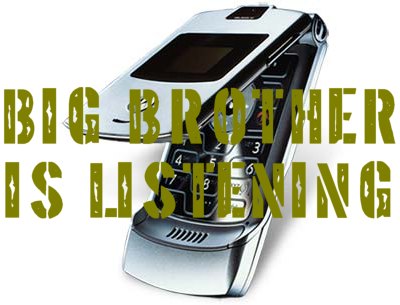Those of us who don’t realize that cell phones have now become surveillance tools live in a bubble that could potentially burst oh so painfully. The American Civil Liberties Union obviously doesn’t live in that particular bubble, and hence, has been busy questioning law enforcement agencies whether or not they’ve been tracking cell phones to monitor the movement of different people. Most of the personnel associated with these agencies, of course, nodded their head in the affirmative. Some of them even claimed that they didn’t even need a warrant to dig deep into the required data. All this in turn has meant that the 4th Amendment – which provides guarantee against unreasonable searches – is now very much under jeopardy.

Common Practice
The law enforcing authorities have also revealed that more often than not, they don’t even need a warrant to obtain the desired information from a particular cell phone. And therefore, cell phone tracking is becoming an increasingly common practice on the part of police to counter crime in their respective area; monitoring software for cell phone isn’t a small issue, however.
The fact that phone companies have now started printing and distributing monitoring services catalogs – which contain detailed price lists of all the services that the company provides – tells you everything you need to know about the frequency of cell phone tracking in this day and age. Our privacy is being auctioned via glittering catalogs as we sit here completely unaware of what is going on around us.
The 4th Amendment
The Supreme Court for long has been talking up the 4th Amendment, the so-called Guardian Angel of privacy. The amendment calls for the police to obtain a warrant before breaching their target’s “reasonable expectation of privacy”. This has meant that the authorities have been barred from recording phone conversations without a warrant. A list of dialed numbers and received calls can be obtained through a subpoena, which the court grants if it believes that the desired records have any relevance with the targeted investigation.
However, owing to the fact that most companies have now virtually put out personal information of its customers on sale, the 4th Amendment’s “guardian” status has become bit of a joke now. The monitoring service catalogs, ladies and gentlemen, are the living mockery of the Supreme Court, the U.S. Constitution and of course of any of its amendments.
Financial interest over customers’ privacy
In fact the whole money equation is what makes the whole episode incredibly pathetic. Since the phone companies are now collecting fees to provide information to the law enforcing agencies, it has now become a question of pitting monetary interest against the customers’ privacy. And we all know there’s only ever going to be one winner in that particular brawl.
This is exactly why Republican Edward J. Markey, the co-chairman of Congressional Bipartisan Privacy Caucus, recently asked the top wireless carriers in the country about the amount of money they had collected from law enforcement agencies. The replies to which are still being keenly awaited.
The 4th amendment needs a guardian
Cell phone tracking can help reduce crime; there are no two ways about that. But its unwarranted monitoring software for cell phones can just as easily reduce privacy into a leaf out of mythology. The judicial authorities need to take a firm stance on the issue and clarify the ambiguities. There are no clear rules to sift the emergencies from everyday investigations, which makes the misuse of technology all the more likely.
The 4th Amendment is clearly protecting zilch as far as privacy is concerned. Maybe it needs a protector itself.
Natalia David is the author who often writes about Monitoring software for computer and keylogger technology. You can also follow her on Twitter @NataliaDavid4 to get the latest tips about computer security.